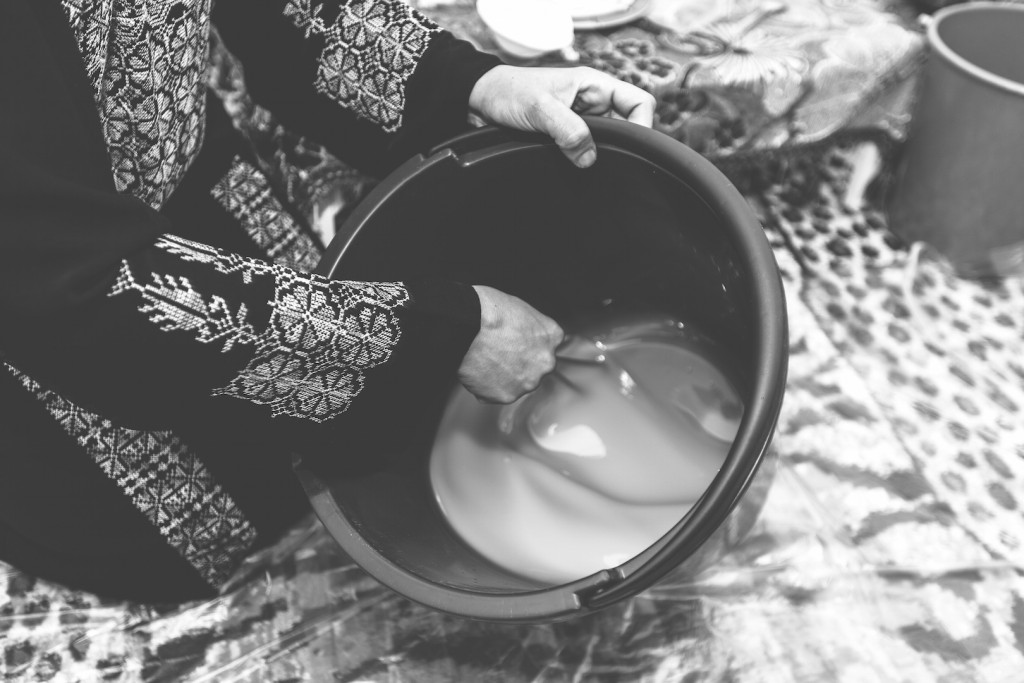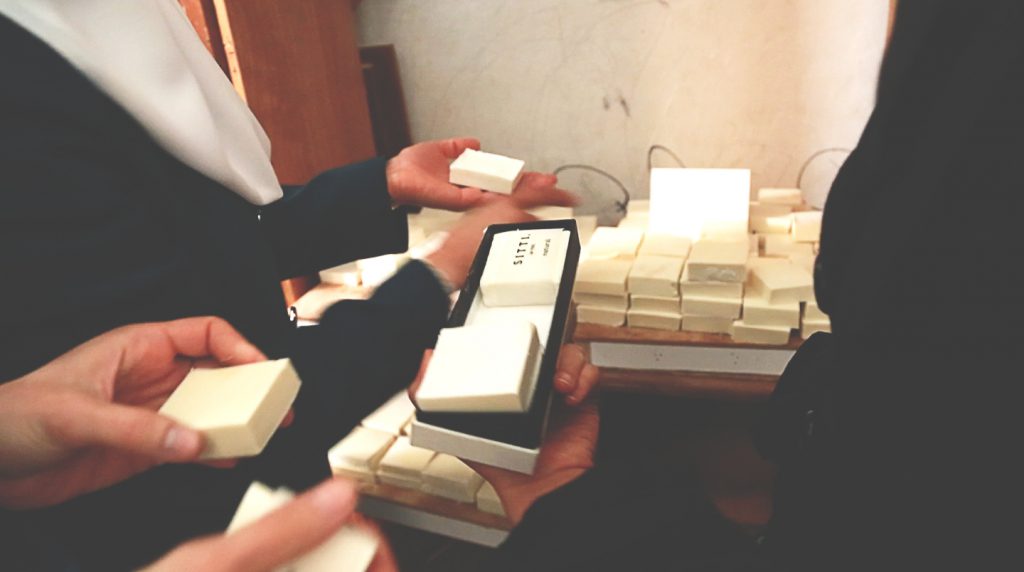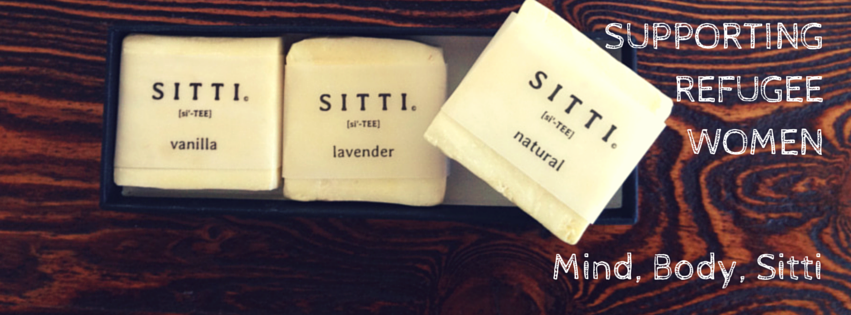One of the oldest cultivated trees in the world, the olive tree has long been seen as a symbol of peace, sacredness and unity.
Native to the Middle East and the Mediterranean basin, these trees were being grown long before the written language was invented with its delicious, plump fruit nourishing, healing and stimulating people for millennia as a popular food, beauty and trade item.
Deeply rooted in the landscape, culture and history of the region, the practice of squeezing the beloved fruit for olive oil has been practiced in the region as far back as 8,000 years ago.
In Palestine, these trees are seen as much more than olives and oil but a symbol of the Palestinian people, their homeland and history.
Tapping into the centuries-old tradition of making soap from olive oil, Jacqueline Sophia and Noora Sharrab dedicated their lives to empower women from impoverished regions of Jordan and the Jerash ‘Gaza’ refugee camp through their skincare company and social enterprise, Sitti.
Through conscious and continuous activism, these inspiring women co-founded the woman-focused enterprise to strengthen their Gazan identity, economically empower women in the community and bring sustainability and integrity to these regions by reviving the tradition of soap-making.
“It allows women to become more empowered both within their communities as well as outside of the community in Jordan and the surrounding region where people will end up learning more not just about the tradition of soap-making but also the women themselves and what they have been able to accomplish in such a challenging environment,” said Sophia.
Established in 2014, Sitti has already has women working and making soaps using age old traditional methods and ingredients. Sitti, which befittingly means ‘grandmother’ in Arabic, makes the small, white blocks of creamy soap using natural ingredients including locally sourced extra virgin olive oil from Jordan, purified water and essential oil infusions while staying true to traditional Palestinian methods.
Using the traditional Nabulsi cold press method, the oil is first extracted from olives using an oil press that is authentic to the Nabulsi region of Palestine, before being heated and mixed in a bucket and then poured into moulds. After they harden, the soap is then stacked to allow for air circulation to help the drying process for a period of 10-30 days before they are packaged.
 Sitti not only empowers the women making the soap, but also brings employment to other people involved in the process – from growing olives and harvesting them to oil pressing and transportation.
Sitti not only empowers the women making the soap, but also brings employment to other people involved in the process – from growing olives and harvesting them to oil pressing and transportation.
The entire project is grounded in steering women towards economic empowerment and independence – which is the perhaps the first step in women’s rights and freedom. Sitti, however, does not stop at generating income and profits, but works towards the overall empowerment of women in the community. One of the founders, Noora Sharrab is also the founder of Hopes for Women in Education under which Sitti is run.
One of the founders, Noora Sharrab is also the founder of Hopes for Women in Education under which Sitti is run.
Hopes for Women in Education provides scholarships to deserving girls from Jerash and has recently launched a crowd funding campaign on AFKARMENA to help develop and renovate the Hopes-Sitti Women’s Centre and Production Facility, purchase materials and supplies for the workshop and compensate the female soap makers for at least a year prior to establishing significant revenue generation.
So what’s next for Sitti?
“I think for us, with Sitti or with any other social enterprise project, it’s to eventually get them on their feet and to have them feel like they can take their lives in their own hands without our help,” said Sharrab. “I think essentially as a community…we’re all kind of connected in some way. So, I feel like getting them to be able to help their families…to help sustain a family of six, to help them put food on the table, I think we did our job.”
To learn more about Sitti and to help support their inspiring project, follow them on Facebook and visit their campaign website.




















Comments